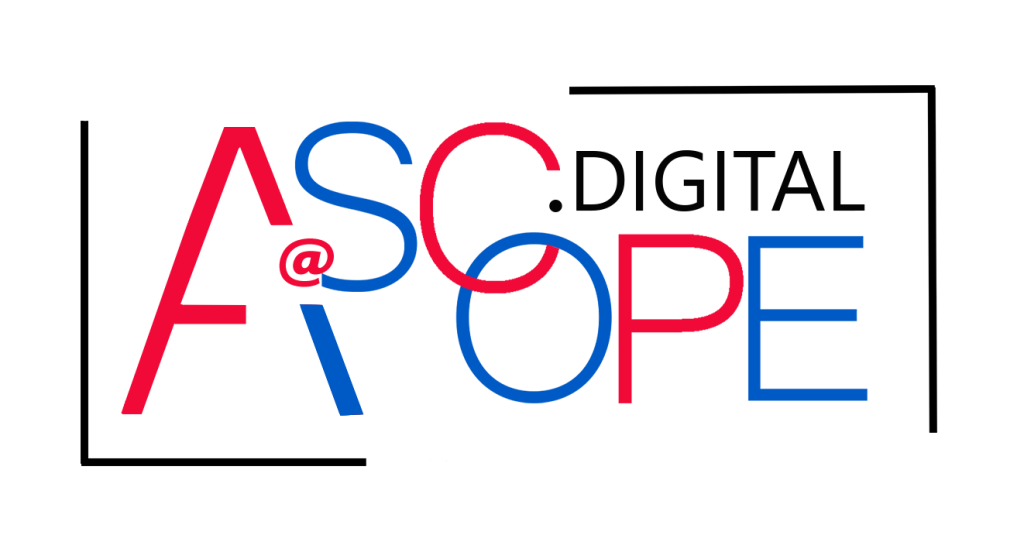Introduction to Technical SEO in 2024
Technical SEO involves optimizing a website for the crawling and indexing phase. It forms the foundation of your SEO efforts by ensuring search engines can access, crawl, interpret, and index your site without any issues. Unlike traditional SEO, which focuses on content and keywords, technical SEO delves into the architecture and infrastructure of a website. This includes aspects such as site speed, mobile-friendliness, security, and site structure.
The Evolution of Technical SEO
Technical SEO is constantly evolving as search engines, especially Google, update their algorithms to deliver the most relevant results to users. In 2024, the landscape of technical SEO has shifted to accommodate advancements in technology and changes in user behavior. The increasing use of artificial intelligence, the rise of voice search, and the emphasis on mobile-first indexing have all influenced how technical SEO is approached.
Why Technical SEO is Crucial in 2024
Enhanced User Experience: Technical SEO ensures a website is fast, mobile-friendly, and secure. These factors significantly contribute to a positive user experience, which in turn can lead to higher engagement rates and better rankings.
Higher Search Engine Rankings: Search engines prioritize websites that are optimized for speed, mobile usability, and security. By focusing on technical SEO, you can improve your site’s chances of ranking higher in search results.
Better Crawlability and Indexing: Proper technical SEO practices ensure that search engine bots can easily crawl and index your site. This is crucial for getting your content discovered and ranked.
Key Components of Technical SEO in 2024
Site Speed Optimization
- Importance: Fast-loading sites provide a better user experience and are favored by search engines.
- Techniques: Implementing lazy loading, compressing images, and leveraging browser caching are essential practices.
Mobile Optimization
- Importance: With mobile-first indexing, ensuring your site is fully optimized for mobile devices is crucial.
- Techniques: Responsive design, faster mobile page load times, and optimized mobile navigation are key strategies.
Secure Sockets Layer (SSL)
- Importance: SSL encryption is a ranking factor and ensures that user data is protected.
- Implementation: Switching from HTTP to HTTPS is necessary for securing your website.
Structured Data Markup
- Importance: Structured data helps search engines understand your content better, leading to rich snippets and better visibility.
- Implementation: Using schema markup for different types of content can enhance search engine results.
XML Sitemaps
- Importance: XML sitemaps help search engines find and index all the important pages on your site.
- Creation and Submission: Regularly updating and submitting your sitemap to search engines like Google and Bing is essential.
Robots.txt
- Importance: This file guides search engine bots on which pages to crawl and which to avoid.
- Optimization: Ensuring your robots.txt file is correctly configured prevents accidental blocking of important content.
Canonical Tags
- Importance: Canonical tags help prevent duplicate content issues by specifying the preferred version of a page.
- Implementation: Using canonical tags correctly ensures that link equity is not diluted across duplicate pages.
The Role of AI and Machine Learning
Artificial intelligence (AI) and machine learning are playing a significant role in shaping the future of technical SEO. Tools powered by AI can analyze vast amounts of data to provide insights and recommendations for optimization. In 2024, leveraging AI for technical SEO can help in identifying issues faster and implementing effective solutions.
Site Auditing Tools: Ensuring Your Website’s Health

Site auditing is a critical aspect of technical SEO, involving a comprehensive analysis of a website to identify issues affecting its performance and search engine rankings. Regular site audits help you maintain your website’s health, ensuring it adheres to search engine guidelines and delivers an optimal user experience. In 2024, the increasing complexity of websites and search engine algorithms makes site auditing more important than ever.
Key Benefits of Site Auditing
Improved Performance: Identifying and resolving performance issues such as slow loading times, broken links, and duplicate content can significantly enhance your website’s speed and usability.
Better Crawlability and Indexing: Ensuring that search engine bots can effectively crawl and index your website helps improve visibility and rankings.
Enhanced User Experience: Addressing issues like mobile usability, security vulnerabilities, and accessibility ensures a better experience for users, which can lead to higher engagement and conversions.
SEO Compliance: Regular audits ensure that your website complies with the latest SEO best practices and search engine guidelines, helping you avoid penalties and maintain high rankings.
Essential Site Auditing Tools for 2024
Several powerful tools are available to help you conduct thorough site audits and maintain your website’s health. Here are some of the most essential site auditing tools for 2024:
1. Google Search Console
Google Search Console is an invaluable tool for monitoring your website’s presence in Google search results. It provides detailed insights into how Google crawls and indexes your site, highlighting issues that need attention.
Key Features:
- Performance reports showing search queries, clicks, impressions, and average position.
- Index coverage reports indicating pages that are indexed or blocked.
- Mobile usability reports identifying issues affecting mobile users.
- Security issues reports highlighting potential security vulnerabilities.
Benefits: Using Google Search Console helps you identify and resolve issues that could impact your search rankings and provides direct feedback from Google on your website’s performance.
2. Screaming Frog SEO Spider
Screaming Frog SEO Spider is a powerful desktop program that crawls websites, providing a detailed analysis of key SEO elements. It’s an essential tool for conducting in-depth technical audits.
Key Features:
- Crawls up to 500 URLs for free, with paid versions available for larger sites.
- Identifies broken links, duplicate content, and missing metadata.
- Analyzes page titles, meta descriptions, headings, and response codes.
- Generates XML sitemaps and integrates with Google Analytics.
Benefits: Screaming Frog SEO Spider helps you quickly identify and fix technical SEO issues, ensuring your website is fully optimized for search engines.
3. SEMrush Site Audit
SEMrush Site Audit is a comprehensive tool that provides detailed insights into your website’s health and SEO performance. It offers a range of features designed to help you identify and resolve issues.
Key Features:
- Conducts a complete site audit, identifying over 130 on-page and technical SEO issues.
- Provides a health score indicating the overall condition of your site.
- Highlights issues related to crawlability, HTTPS, site performance, and internal linking.
- Offers actionable recommendations for fixing identified issues.
Benefits: SEMrush Site Audit helps you maintain a healthy website by providing clear, actionable insights and recommendations for improving your SEO performance.
4. Ahrefs Site Audit
Ahrefs Site Audit is another robust tool for conducting thorough technical SEO audits. It offers a range of features designed to help you maintain your website’s health and performance.
Key Features:
- Crawls your entire website, identifying issues that affect SEO performance.
- Provides an overall health score and detailed reports on specific issues.
- Highlights problems related to performance, HTML tags, social tags, content quality, and more.
- Offers advanced filtering options and exportable reports.
Benefits: Ahrefs Site Audit helps you keep your website in top shape by providing comprehensive analysis and detailed recommendations for improvement.
5. Moz Pro Site Crawl
Moz Pro Site Crawl is a user-friendly tool designed to help you identify and fix technical SEO issues. It offers a range of features to ensure your website remains healthy and optimized.
Key Features:
- Crawls your website, identifying critical issues such as broken links, missing tags, and duplicate content.
- Provides a crawl diagnostics report with detailed information on each issue.
- Offers prioritized recommendations for resolving identified issues.
- Integrates with other Moz Pro tools for comprehensive SEO management.
Benefits: Moz Pro Site Crawl simplifies the process of identifying and fixing technical SEO issues, helping you maintain a healthy, high-performing website.
6. DeepCrawl
DeepCrawl is an enterprise-level site auditing tool that offers a comprehensive range of features for analyzing and optimizing large websites. It’s designed to help you identify and resolve complex technical SEO issues.
Key Features:
- Performs deep crawls of your website, identifying a wide range of technical issues.
- Provides detailed reports on issues related to crawlability, indexability, content quality, and site architecture.
- Integrates with Google Search Console and Google Analytics for additional insights.
- Offers advanced filtering, segmentation, and export options.
Benefits: DeepCrawl is ideal for large websites with complex structures, providing in-depth analysis and actionable recommendations for maintaining optimal SEO performance.
7. Sitebulb
Sitebulb is a user-friendly site auditing tool that offers a range of features for analyzing and optimizing your website. It’s designed to help you identify and fix technical SEO issues quickly and efficiently.
Key Features:
- Crawls your website, identifying issues such as broken links, missing tags, and duplicate content.
- Provides a visual representation of your site structure, highlighting key issues.
- Offers detailed reports and actionable recommendations for resolving identified issues.
- Integrates with Google Analytics and Search Console for additional insights.
Benefits: Sitebulb makes it easy to identify and fix technical SEO issues, helping you maintain a healthy, high-performing website.
Crawling and Indexing Tools: Enhancing Search Visibility

Crawling and indexing are fundamental processes in search engine optimization (SEO). Crawling involves search engines sending out bots, also known as spiders or crawlers, to discover new and updated content on the web. Indexing, on the other hand, refers to the process of storing and organizing the content found during crawling so it can be retrieved and ranked in response to search queries. Ensuring that your website is effectively crawled and indexed is crucial for enhancing its visibility on search engines.
The Importance of Crawling and Indexing Tools
Crawling and indexing tools are essential for identifying and resolving issues that could prevent search engines from accessing and understanding your content. These tools provide insights into how search engines interact with your site, highlighting areas that need improvement to ensure better visibility and higher rankings. In 2024, with the increasing complexity of websites and search engine algorithms, using the right crawling and indexing tools is more important than ever.
Key Benefits of Crawling and Indexing Tools
Improved Crawlability: These tools help identify issues such as broken links, duplicate content, and inaccessible pages that could hinder search engine crawlers from properly navigating your site.
Enhanced Indexing: Ensuring that all important pages are indexed increases the likelihood of your content appearing in search results, thereby improving your site’s visibility.
Optimization Insights: Crawling and indexing tools provide valuable insights into on-page SEO elements, helping you optimize titles, meta descriptions, and headers for better search engine performance.
Efficient Monitoring: These tools allow you to monitor your site’s health continuously, ensuring that any issues are promptly addressed to maintain optimal search engine visibility.
Essential Crawling and Indexing Tools for 2024
Here are some of the most essential crawling and indexing tools you should consider using in 2024 to enhance your website’s search visibility:
1. Google Search Console
Google Search Console is a free tool provided by Google that helps you monitor, maintain, and troubleshoot your site’s presence in Google Search results. It provides detailed insights into how Google crawls and indexes your site.
Key Features:
- Index Coverage Report: Shows which pages are indexed and which have issues.
- URL Inspection Tool: Provides detailed information about the indexed version of a specific page.
- Crawl Stats Report: Displays data on Google’s crawling activity.
- Sitemaps Submission: Allows you to submit sitemaps to help Google crawl your site more efficiently.
Benefits: Google Search Console helps you identify and fix issues that could prevent your site from being crawled and indexed properly, ensuring better visibility in search results.
2. Screaming Frog SEO Spider
Screaming Frog SEO Spider is a powerful desktop program that crawls websites and provides a detailed analysis of key SEO elements. It’s essential for conducting in-depth technical audits and identifying crawling and indexing issues.
Key Features:
- Identifies broken links, duplicate content, and missing metadata.
- Analyzes page titles, meta descriptions, headers, and response codes.
- Provides visualizations of your site’s structure to identify crawl depth and internal linking issues.
- Generates XML sitemaps and integrates with Google Analytics.
Benefits: Screaming Frog SEO Spider helps you quickly identify and fix technical SEO issues, ensuring that your site is fully optimized for search engine crawlers.
3. Ahrefs Site Audit
Ahrefs Site Audit is a comprehensive tool that helps you analyze your website’s health and performance. It provides detailed insights into crawling and indexing issues, allowing you to optimize your site for better search visibility.
Key Features:
- Conducts a thorough crawl of your website, identifying issues affecting SEO performance.
- Highlights problems related to performance, HTML tags, content quality, and more.
- Provides an overall health score and detailed reports on specific issues.
- Offers advanced filtering options and exportable reports.
Benefits: Ahrefs Site Audit helps you maintain a healthy website by providing comprehensive analysis and actionable recommendations for improving your SEO performance.
4. DeepCrawl
DeepCrawl is an enterprise-level site auditing tool that offers a comprehensive range of features for analyzing and optimizing large websites. It’s designed to help you identify and resolve complex technical SEO issues related to crawling and indexing.
Key Features:
- Performs deep crawls of your website, identifying a wide range of technical issues.
- Provides detailed reports on issues related to crawlability, indexability, content quality, and site architecture.
- Integrates with Google Search Console and Google Analytics for additional insights.
- Offers advanced filtering, segmentation, and export options.
Benefits: DeepCrawl is ideal for large websites with complex structures, providing in-depth analysis and actionable recommendations for maintaining optimal SEO performance.
5. Moz Pro Site Crawl
Moz Pro Site Crawl is a user-friendly tool designed to help you identify and fix technical SEO issues. It offers a range of features to ensure your website remains healthy and optimized for search engines.
Key Features:
- Crawls your website, identifying critical issues such as broken links, missing tags, and duplicate content.
- Provides a crawl diagnostics report with detailed information on each issue.
- Offers prioritized recommendations for resolving identified issues.
- Integrates with other Moz Pro tools for comprehensive SEO management.
Benefits: Moz Pro Site Crawl simplifies the process of identifying and fixing technical SEO issues, helping you maintain a healthy, high-performing website.
6. OnCrawl
OnCrawl is a powerful technical SEO platform that provides in-depth crawling and log analysis. It helps you understand how search engines interact with your site and identifies issues that could affect your search visibility.
Key Features:
- Comprehensive site crawling to identify technical SEO issues.
- Log analysis to understand how search engines crawl your site.
- Detailed reports on crawl behavior, indexation, and performance.
- Integration with Google Search Console, Google Analytics, and other SEO tools.
Benefits: OnCrawl provides a deep understanding of search engine behavior and technical SEO issues, allowing you to optimize your site for better search visibility.
7. Botify
Botify is an advanced SEO tool that provides comprehensive insights into how search engines crawl and index your site. It combines crawling, log file analysis, and real-time indexing data to help you optimize your site.
Key Features:
- Site crawling to identify technical SEO issues.
- Log file analysis to understand search engine bot behavior.
- Real-time indexing data to monitor how your site is being indexed.
- Advanced reporting and analytics to track SEO performance.
Benefits: Botify helps you gain a holistic view of your site’s technical SEO health, providing actionable insights to enhance search visibility and performance.
Speed Optimization Tools: Boosting Website Performance
In the digital age, website speed plays a crucial role in user experience and search engine optimization (SEO). Slow-loading websites frustrate users, leading to higher bounce rates and lower engagement. Moreover, search engines like Google consider page speed as a ranking factor, making it essential for websites to load quickly. In 2024, the importance of website speed has only increased, with users expecting near-instant load times and search engines rewarding faster websites with better rankings.
Benefits of Speed Optimization
Improved User Experience: Fast-loading websites provide a seamless user experience, leading to higher engagement, longer session durations, and increased conversions.
Higher Search Engine Rankings: Search engines prioritize fast websites in their rankings, so optimizing your site’s speed can improve your visibility and organic traffic.
Lower Bounce Rates: Slow websites often result in users leaving before the page loads, leading to high bounce rates. Speed optimization helps retain visitors.
Increased Conversion Rates: Faster websites enhance the overall user experience, which can lead to higher conversion rates and improved sales.
Mobile Friendliness: With the increasing use of mobile devices, ensuring your website loads quickly on smartphones and tablets is crucial for reaching a broader audience.
Essential Speed Optimization Tools for 2024
To achieve optimal website performance, leveraging speed optimization tools is essential. Here are some of the most effective tools available in 2024:
1. Google PageSpeed Insights
Google PageSpeed Insights is a free tool that analyzes your website’s performance and provides suggestions for improvement. It evaluates both desktop and mobile versions of your site.
Key Features:
- Performance scores for mobile and desktop.
- Detailed suggestions for improving speed, including image optimization, server response times, and caching strategies.
- User experience metrics like First Contentful Paint (FCP) and Largest Contentful Paint (LCP).
Benefits: Google PageSpeed Insights offers actionable recommendations directly from Google, helping you align your site with search engine expectations for optimal performance.
2. GTmetrix
GTmetrix is a comprehensive tool that provides detailed insights into your website’s speed and performance. It offers both free and premium versions, catering to different needs.
Key Features:
- Performance scores based on Google Lighthouse and other metrics.
- Waterfall charts showing the load sequence of your website’s elements.
- Recommendations for improving load times, such as image compression and script optimization.
- Video playback of your page load for visual analysis.
Benefits: GTmetrix provides in-depth analysis and visual tools to help you understand and optimize your site’s loading process, making it easier to identify and fix bottlenecks.
3. Pingdom Website Speed Test
Pingdom offers a simple yet powerful website speed testing tool that provides a detailed analysis of your site’s performance. It focuses on identifying key issues that affect load times.
Key Features:
- Performance grades based on various metrics.
- Detailed breakdown of load times by content type, domain, and request.
- Recommendations for improving performance, including reducing DNS lookups and leveraging browser caching.
- Historical performance tracking.
Benefits: Pingdom’s user-friendly interface and detailed reports make it easy to identify performance issues and track improvements over time, helping you maintain optimal site speed.
4. WebPageTest
WebPageTest is a robust tool that offers advanced testing capabilities for website speed and performance. It allows you to run tests from multiple locations around the world.
Key Features:
- Multi-step transactions and video capture of page loads.
- Detailed performance reports, including Time to First Byte (TTFB) and Speed Index.
- Advanced settings for simulating different network conditions and devices.
- Waterfall charts and filmstrip views of page load sequences.
Benefits: WebPageTest’s advanced features and global testing options provide a comprehensive view of your site’s performance, helping you optimize for users across different regions and devices.
5. Lighthouse
Lighthouse is an open-source tool from Google that performs audits on web pages, providing insights into performance, accessibility, SEO, and more. It is integrated into Chrome DevTools.
Key Features:
- Performance audits with actionable recommendations.
- Metrics such as FCP, LCP, and Cumulative Layout Shift (CLS).
- Accessibility and SEO audits to ensure your site meets best practices.
- PWA (Progressive Web App) audits for enhancing mobile performance.
Benefits: Lighthouse offers a holistic view of your website’s performance, covering various aspects of user experience and providing detailed reports to guide your optimization efforts.
6. Cloudflare
Cloudflare is a content delivery network (CDN) and web performance optimization tool that helps improve website speed and security. It offers both free and premium plans.
Key Features:
- CDN services to distribute content closer to users.
- DDoS protection and security features.
- Image and content optimization.
- Caching solutions to reduce server load and improve load times.
Benefits: Cloudflare enhances your website’s speed by reducing latency and load times, while also providing robust security features to protect against online threats.
7. WP Rocket
WP Rocket is a premium caching plugin for WordPress websites, designed to improve load times and overall performance. It is user-friendly and highly effective.
Key Features:
- Page caching and browser caching.
- Gzip compression and cache preloading.
- Lazy loading for images and videos.
- Database optimization and minification of CSS, JavaScript, and HTML.
Benefits: WP Rocket simplifies the process of speed optimization for WordPress users, providing an all-in-one solution to enhance site performance and user experience.
Mobile SEO Tools: Adapting to the Mobile-First World
With the shift to mobile-first indexing by search engines like Google, optimizing your website for mobile devices is no longer optional; it’s essential. Mobile SEO focuses on ensuring that your website provides a seamless experience on mobile devices, which are now the primary means of accessing the internet for many users worldwide. In 2024, adapting to the mobile-first world is crucial for maintaining and improving your search engine rankings and providing a positive user experience.
Benefits of Mobile SEO
- Enhanced User Experience: Mobile-friendly websites offer a better user experience, which leads to higher engagement, longer session durations, and increased conversions.
- Higher Search Engine Rankings: Search engines prioritize mobile-friendly websites in their rankings, making mobile optimization crucial for visibility and traffic.
- Increased Traffic: With more people using mobile devices to browse the internet, a mobile-optimized site can attract more visitors.
- Lower Bounce Rates: Mobile-optimized websites are easier to navigate, reducing the likelihood of users leaving immediately after landing on your page.
- Competitive Advantage: As more businesses optimize for mobile, staying ahead of the competition requires continuous improvements in mobile SEO.
Essential Mobile SEO Tools for 2024
To ensure your website is fully optimized for mobile devices, leveraging mobile SEO tools is crucial. Here are some of the most effective tools available in 2024:
1. Google Mobile-Friendly Test
Google Mobile-Friendly Test is a free tool that helps you determine whether your website is mobile-friendly. It provides insights into how well your site performs on mobile devices and offers suggestions for improvement.
Key Features:
- Mobile usability analysis to check if your site is optimized for mobile devices.
- Detailed reports on issues affecting mobile-friendliness.
- Recommendations for improving mobile usability, such as adjusting font sizes and ensuring touch elements are appropriately spaced.
Benefits: The Google Mobile-Friendly Test provides direct feedback from Google on how to improve your site’s mobile performance, helping you align with mobile-first indexing requirements.
2. Google Search Console Mobile Usability Report
Google Search Console’s Mobile Usability Report identifies specific mobile usability issues that could affect your site’s performance in search results. It highlights problems that need attention to ensure a smooth mobile experience.
Key Features:
- Detailed analysis of mobile usability issues, such as clickable elements being too close and content wider than the screen.
- Alerts for new issues detected over time.
- Integration with other Google Search Console features for comprehensive site management.
Benefits: This tool helps you stay on top of mobile usability issues, ensuring your site remains optimized for mobile users and meets Google’s mobile-first indexing standards.
3. Lighthouse
Lighthouse is an open-source, automated tool for improving the quality of web pages. It has audits for performance, accessibility, progressive web apps, SEO, and more, with a strong focus on mobile performance.
Key Features:
- Mobile performance audits with metrics such as First Contentful Paint (FCP) and Largest Contentful Paint (LCP).
- Detailed reports with actionable recommendations for improving mobile performance.
- Accessibility and SEO audits to ensure your site meets best practices.
Benefits: Lighthouse provides a comprehensive view of your site’s mobile performance and offers practical suggestions to enhance it, ensuring a better user experience and higher search rankings.
4. TestMySite
TestMySite by Google is a mobile-focused tool that provides insights into your website’s mobile performance and offers recommendations for improvement.
Key Features:
- Mobile speed tests to evaluate your site’s load times on mobile devices.
- Industry benchmarks to compare your site’s performance against competitors.
- Customized reports with actionable steps to improve mobile speed and user experience.
Benefits: TestMySite helps you understand your site’s mobile performance in the context of industry standards, providing clear guidance on how to make improvements.
5. PageSpeed Insights
PageSpeed Insights analyzes the content of a web page and generates suggestions to make that page faster. It provides data for both mobile and desktop devices, with a strong emphasis on mobile optimization.
Key Features:
- Performance scores for mobile and desktop versions of your site.
- Detailed recommendations for improving page speed, such as optimizing images and leveraging browser caching.
- User experience metrics like First Input Delay (FID) and Cumulative Layout Shift (CLS).
Benefits: PageSpeed Insights helps you optimize your site’s speed, particularly for mobile devices, ensuring faster load times and better user experiences.
6. SEMrush Mobile SEO
SEMrush offers a comprehensive suite of tools for mobile SEO, helping you analyze and improve your site’s mobile performance. It provides insights into mobile rankings, usability, and site performance.
Key Features:
- Mobile-specific keyword tracking to monitor your site’s performance in mobile search results.
- Mobile usability reports identifying issues affecting mobile user experience.
- Competitive analysis to compare your site’s mobile performance with competitors.
Benefits: SEMrush Mobile SEO tools help you stay ahead of the competition by providing detailed insights and recommendations for improving your site’s mobile performance.
7. Screaming Frog SEO Spider
Screaming Frog SEO Spider is a powerful website crawler that can be used to identify and fix mobile SEO issues. It provides a detailed analysis of various on-page elements affecting mobile performance.
Key Features:
- Identification of mobile-specific issues such as mobile page speed, duplicate content, and missing meta tags.
- Customizable crawl settings to simulate mobile user agents.
- Integration with Google Analytics and Search Console for comprehensive data analysis.
Benefits: Screaming Frog SEO Spider helps you ensure that your site is fully optimized for mobile devices by identifying and addressing specific issues that could impact mobile SEO.
Schema Markup and Structured Data Tools: Enhancing Search Results
Schema markup, also known as structured data, is a form of microdata that helps search engines understand the content of your website. By adding schema markup to your HTML, you create a rich snippet that appears in search engine results, providing more detailed information about your page to users. This can include star ratings, images, operating hours, event details, and more. In 2024, the use of schema markup is more critical than ever, as it helps improve your site’s visibility and click-through rates (CTR) by making your search listings more informative and appealing.
Benefits of Schema Markup and Structured Data
Improved Search Visibility: Schema markup helps your content stand out in search results by enhancing your listings with rich snippets, which can lead to higher CTR.
Better User Experience: Providing additional information directly in search results helps users find what they’re looking for more quickly and can improve their overall experience.
Enhanced Local SEO: For local businesses, schema markup can improve visibility in local search results by providing information such as address, phone number, and operating hours.
Voice Search Optimization: Structured data helps search engines understand your content better, making it more likely to be used in voice search results, which are becoming increasingly popular.
Increased Click-Through Rates: Rich snippets attract more attention in search results, which can lead to higher CTR and more traffic to your site.
Essential Schema Markup and Structured Data Tools for 2024
To effectively implement schema markup and structured data, using the right tools is essential. Here are some of the most effective tools available in 2024:
1. Google Structured Data Markup Helper
Google’s Structured Data Markup Helper is a free tool that helps you add structured data to your website. It provides a user-friendly interface to generate the necessary markup for various types of content.
Key Features:
- Supports multiple content types, including articles, events, products, and more.
- Easy-to-use interface for tagging and generating markup.
- Direct integration with Google’s guidelines for structured data.
Benefits: This tool simplifies the process of creating structured data, ensuring that your markup is aligned with Google’s standards and improving your chances of gaining rich snippets in search results.
2. Schema.org
Schema.org is the official resource for schema markup vocabularies. It provides comprehensive documentation and examples for implementing structured data on your website.
Key Features:
- Extensive library of schema types and properties.
- Examples and guidelines for implementing schema markup.
- Regular updates and new schemas to keep up with evolving search engine requirements.
Benefits: Schema.org serves as the go-to resource for understanding and implementing structured data, helping you stay updated with the latest schemas and best practices.
3. Yoast SEO Plugin
The Yoast SEO plugin for WordPress includes built-in support for schema markup. It automatically adds structured data to your website, helping improve your search visibility.
Key Features:
- Automatic generation of schema markup for posts, pages, and custom post types.
- Integration with other Yoast SEO features, such as XML sitemaps and social metadata.
- User-friendly interface for managing and customizing schema settings.
Benefits: Yoast SEO simplifies the process of adding structured data to your WordPress site, making it accessible even for users with limited technical knowledge.
4. Google Rich Results Test
Google’s Rich Results Test tool allows you to check if your pages are eligible for rich results in search. It validates your structured data and provides feedback on any errors or improvements needed.
Key Features:
- Testing for a variety of rich result types, including recipes, events, and products.
- Detailed feedback on structured data implementation.
- Live testing of URLs and code snippets.
Benefits: This tool helps ensure that your structured data is correctly implemented and optimized for rich results, increasing your chances of enhanced search visibility.
5. Schema Pro
Schema Pro is a premium WordPress plugin that offers advanced features for adding schema markup to your website. It provides a wide range of schema types and customization options.
Key Features:
- Support for multiple schema types, including reviews, recipes, and local business.
- Easy-to-use interface for adding and managing schema markup.
- Automatic schema markup for new and existing content.
Benefits: Schema Pro offers advanced schema customization options, making it ideal for users who need more control over their structured data implementation.
6. Merkle Schema Markup Generator
The Merkle Schema Markup Generator is a free tool that helps you create JSON-LD structured data for your website. It supports a variety of schema types and provides an easy-to-use interface.
Key Features:
- Support for common schema types, including articles, events, and FAQs.
- JSON-LD format for easy integration with your site.
- Real-time preview of generated markup.
Benefits: This tool simplifies the process of generating JSON-LD structured data, making it easy to add schema markup to your site and improve your search visibility.
7. SEOquake
SEOquake is a browser extension that provides a range of SEO tools, including the ability to analyze structured data. It helps you understand how your schema markup is implemented and identifies potential issues.
Key Features:
- Analysis of structured data on any webpage.
- Detailed SEO reports with insights into schema markup.
- Integration with popular browsers, including Chrome and Firefox.
Benefits: SEOquake helps you quickly analyze and debug structured data implementation, ensuring that your schema markup is correctly implemented and optimized for search engines.
Monitoring and Analytics Tools: Tracking SEO Success
![]()
The Importance of Monitoring and Analytics in SEO
In the ever-evolving world of search engine optimization (SEO), monitoring and analytics tools are indispensable. These tools provide insights into your website’s performance, track the effectiveness of your SEO strategies, and identify areas for improvement. By leveraging these tools, you can make data-driven decisions to enhance your site’s visibility, user experience, and search engine rankings. In 2024, the importance of these tools has only increased, as search engines continue to update their algorithms and user behavior shifts towards more personalized and mobile-first experiences.
Benefits of Monitoring and Analytics Tools
- Performance Tracking: These tools allow you to monitor key performance indicators (KPIs) such as traffic, bounce rate, conversion rate, and keyword rankings, providing a clear picture of your site’s performance.
- Insightful Data: Gain valuable insights into user behavior, demographics, and engagement metrics, helping you understand how visitors interact with your site.
- SEO Effectiveness: Track the success of your SEO strategies and campaigns, identifying which tactics are working and which need adjustment.
- Competitive Analysis: Analyze competitors’ performance to benchmark your site against industry standards and discover new opportunities.
- Continuous Improvement: Use data to continually refine and optimize your SEO efforts, ensuring sustained growth and adaptation to changes in search engine algorithms.
Essential Monitoring and Analytics Tools for 2024
Here are some of the most effective monitoring and analytics tools available in 2024 to help you track your SEO success:
1. Google Analytics
Google Analytics remains one of the most powerful and widely used analytics tools. It provides comprehensive insights into your website’s traffic and user behavior.
Key Features:
- Real-time data tracking.
- Detailed reports on audience demographics, behavior, and acquisition channels.
- Goal tracking and conversion analysis.
- Integration with Google Search Console and Google Ads.
Benefits: Google Analytics helps you understand how users interact with your site, where your traffic is coming from, and how effective your SEO strategies are in driving conversions and engagement.
2. Google Search Console
Google Search Console is a free tool that provides detailed insights into your website’s presence in Google Search results. It helps you monitor and maintain your site’s performance in search.
Key Features:
- Performance reports showing clicks, impressions, average position, and CTR.
- Index coverage reports highlighting indexing issues.
- Mobile usability reports.
- Search traffic data, including queries and pages.
Benefits: Google Search Console helps you identify and fix issues that could affect your site’s visibility in search results, ensuring your content is properly indexed and optimized.
3. SEMrush
SEMrush is an all-in-one SEO tool that offers comprehensive analytics and monitoring features. It provides insights into your own site’s performance as well as competitor analysis.
Key Features:
- Keyword tracking and research.
- Backlink analysis.
- Site audits to identify technical SEO issues.
- Competitor analysis and benchmarking.
Benefits: SEMrush helps you track your SEO progress, identify new opportunities, and understand your competitive landscape, enabling you to refine your strategies for better performance.
4. Ahrefs
Ahrefs is a robust SEO toolset that offers extensive analytics and monitoring capabilities. It is particularly known for its powerful backlink analysis and keyword research features.
Key Features:
- Site Explorer for analyzing backlinks and search traffic.
- Keyword Explorer for discovering and tracking keywords.
- Site Audit for identifying on-page SEO issues.
- Rank Tracker for monitoring keyword rankings over time.
Benefits: Ahrefs provides deep insights into your site’s SEO health, helping you optimize your content, improve your backlink profile, and track your rankings effectively.
5. Moz Pro
Moz Pro is a comprehensive SEO tool that offers a range of analytics and monitoring features. It helps you understand and improve your site’s search visibility.
Key Features:
- Keyword tracking and research.
- Link Explorer for analyzing backlink profiles.
- Site Crawl for identifying technical SEO issues.
- On-page optimization recommendations.
Benefits: Moz Pro provides actionable insights to improve your site’s SEO performance, helping you track keyword rankings, optimize content, and enhance your backlink profile.
6. Screaming Frog SEO Spider
Screaming Frog SEO Spider is a powerful website crawler that provides detailed reports on various on-page SEO elements. It’s essential for conducting thorough site audits.
Key Features:
- Crawls your website to identify issues such as broken links, duplicate content, and missing meta tags.
- Provides detailed reports on URL structure, page titles, and metadata.
- Integration with Google Analytics and Search Console.
- Visualizations of site structure and internal linking.
Benefits: Screaming Frog SEO Spider helps you identify and fix technical SEO issues, ensuring your site is fully optimized for search engine crawlers and users.
7. Hotjar
Hotjar is a behavior analytics tool that provides insights into how users interact with your site. It offers heatmaps, session recordings, and feedback tools to understand user behavior.
Key Features:
- Heatmaps showing where users click, scroll, and move on your site.
- Session recordings to see how users navigate your site.
- Feedback polls and surveys to gather user insights.
- Conversion funnels to identify drop-off points.
Benefits: Hotjar helps you understand user behavior on a deeper level, allowing you to optimize your site’s usability and user experience, which can indirectly boost your SEO performance.
Conclusion
In conclusion, leveraging the right crawling and indexing tools in 2024 is essential for maintaining a robust and high-performing website. Tools like Google Search Console, Screaming Frog SEO Spider, Ahrefs Site Audit, DeepCrawl, Botify, and OnCrawl provide invaluable insights into how search engines interact with your site. By identifying and resolving issues that could hinder crawlability and indexing, these tools ensure your content is easily accessible and correctly categorized by search engines, enhancing your search visibility. Keeping your site in optimal health through regular audits and continuous monitoring is key to staying ahead in the competitive SEO landscape. For further insights, read more on the other reasons why your website isn’t getting traffic and discover additional strategies to boost your online presence.





